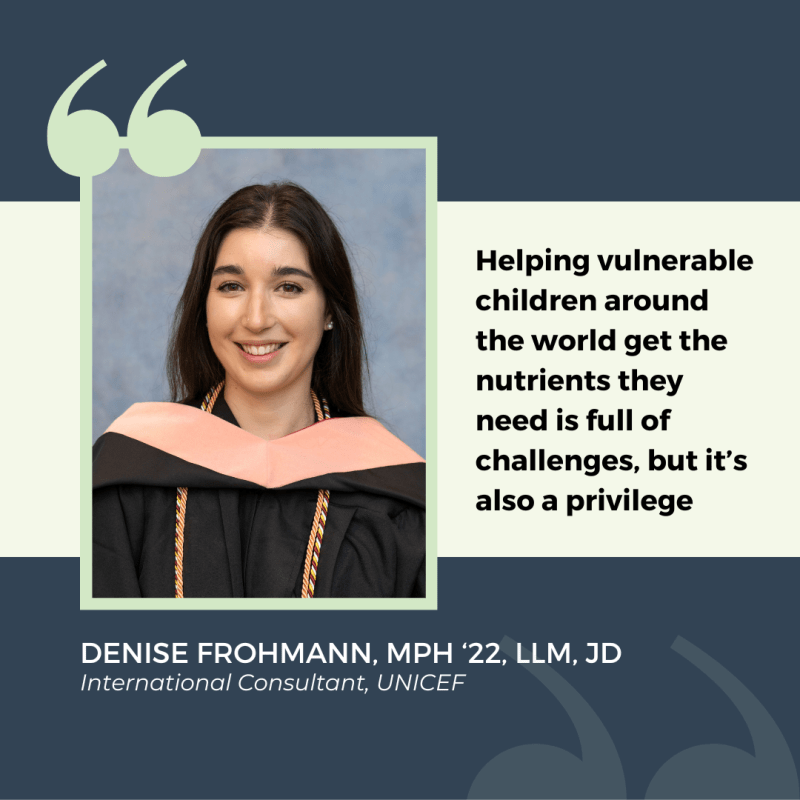Alumni in action: Denise Frohmann
 Working in a corporate firm in Argentina while in law school, Denise Frohmann found herself doing a lot of pro bono work, and realized the for-profit sector might not be for her. “I was interested in the intersection between health and law, but hadn’t made that connection yet,” she remembers. She was soon inspired to shift her focus, after meeting someone doing food policy work with UNICEF, and began to study “everything related to public health nutrition.”
Working in a corporate firm in Argentina while in law school, Denise Frohmann found herself doing a lot of pro bono work, and realized the for-profit sector might not be for her. “I was interested in the intersection between health and law, but hadn’t made that connection yet,” she remembers. She was soon inspired to shift her focus, after meeting someone doing food policy work with UNICEF, and began to study “everything related to public health nutrition.”
At Cornell Public Health, she worked on a USDA-funded project with Dr. Kate Dickin, updating food insecurity measurements among Latinx families in the U.S. At the same time, she began work as a graduate consultant with UNICEF Headquarters’ Nutrition and Child Development Programme Division, where she developed a white paper on salt iodine fortification policy in Ethiopia for her Master of Public Health (MPH) capstone.
Frohmann’s work with UNICEF while at Cornell led to her landing her “dream job,” as an international consultant in the United Nations’ headquarters in New York City. Her role focuses on nutrition for school-aged children and adolescents, including micronutrient supplementation, around the world. “Over two billion people are micronutrient-deficient worldwide,” says Frohmann, “and over 200 million school-aged children are stunted or overweight.” She now works with 82 countries, which she points out “is quite a lot for a program born only five years ago!”
“This job has a lot of facets,” she says, including donor relations and reporting, developing educational tools and international knowledge standards, and working with regional and country offices. “Sometimes, a country comes to us with a problem,” she says, such as high anemia levels in Cameroonian girls. “Then, our main job is providing the local UNICEF office with the resources to do their job in the field,” she says, “like a toolkit.”
Climate change is impacting her work, too, through population displacement as well as rainfall patterns, which greatly impact micronutrient levels in soils. “In so many ways, One Health becomes a big part of what you do in public health,” she says. In the future, Frohmann is considering pursuing a DrPH degree, but also wants to get more “hands-on experience, out there in the field, out of my comfort zone,” perhaps helping children and adolescents in war or disaster zones.
Written by Audrey Baker
